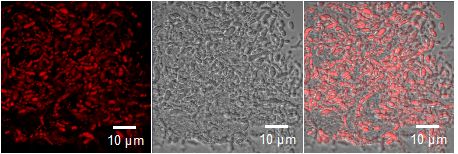July 4, 2014
RIKEN and Kaneka Successfully Produce Bioplastics from Non-Food Biomass
Keywords: Chemicals Environmental Technology University / Research institute

Copyright RIKEN All Rights Reserved.
RIKEN, a comprehensive chemical research institute in Japan, and Kaneka Corporation, a leading Japanese chemical manufacturer, announced on March 29, 2014, that they successfully produced polyhydroxyalkanoic acid (PHA), a type of bioplastic, from an aromatic compound prepared by adding lignin derivative (high molecular-weight compound) and aromatic carboxylic acid to microorganisms. The obtained PHA showed was effective for use in plastic products, such as a film.
Bioplastics are drawing attention as promising alternative materials for petrochemical plastics; however, there are concerns regarding the practical uses of biomass derived from organisms, as obtaining raw materials may lead to food supply problems. Thus, the use of inedible biomass is anticipated.
Lignin, which a type of inedible biomass, contains a component that is a precursor of PHA, although there were problems that needed to be resolved before large-scale PHA production from lignin was possible. These problems include low biodegradability and toxicity of the decomposition products. The joint research group resolved these issues and succeeded in producing bioplastic using microorganisms.
These results are expected to accelerate the development of base technologies to produce materials from lignin using microorganisms, the practicality of which has been considered difficult.
Related
"JFS Newsletter"
Related
"Popular Articles"
- New Model Estimates Nitrogen Outflow and Water Pollution from Food Production and Consumption
- Japanese Agricultural Organizations Develop New Phytoremediation Method Using Cd Accumulator Rice Varieties
- RIKEN and Kaneka Successfully Produce Bioplastics from Non-Food Biomass
- Taisei Establishes On-Site Remediation Method for Cyanide-Contaminated Soil
- Pest Control Method Using Sex Pheromone Developed to Keep Sugarcane from White Grubs


